
-
 France's PM prepares to force budget through parliament
France's PM prepares to force budget through parliament
-
Beyonce finally wins top album at Grammys, as Lamar shines
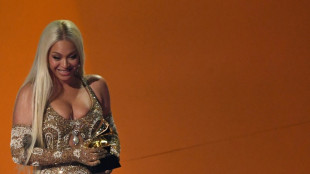
-
 Israeli prime minister in Washington for Gaza ceasefire talks
Israeli prime minister in Washington for Gaza ceasefire talks
-
Key winners for the Grammy Awards
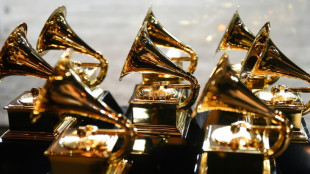
-
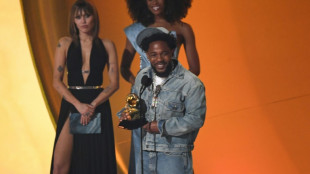 Kendrick Lamar wins best record and song Grammys for 'Not Like Us'
Kendrick Lamar wins best record and song Grammys for 'Not Like Us'
-
How China allegedly contributes to the deadly fentanyl crisis

-
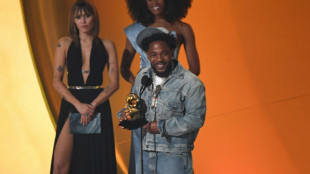 Kendrick Lamar wins Record of the Year Grammy for 'Not Like Us'
Kendrick Lamar wins Record of the Year Grammy for 'Not Like Us'
-
US stars Shiffrin and Vonn headline Saalbach worlds

-
 'Life's ruined': UK town broken by grooming gangs wants answers
'Life's ruined': UK town broken by grooming gangs wants answers
-
Beyonce wins top country album honors at Grammys
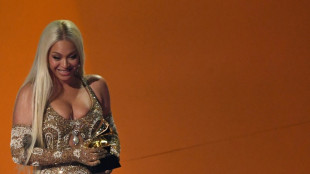
-
 Eyeing Trump and Putin, EU, UK, NATO leaders talk defence
Eyeing Trump and Putin, EU, UK, NATO leaders talk defence
-
Chappell Roan wins Grammy for Best New Artist
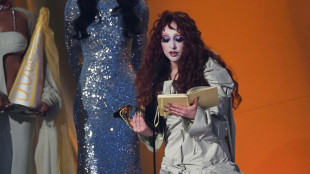
-
 Tunisia sets sights on becoming world's top seawater therapy spot
Tunisia sets sights on becoming world's top seawater therapy spot
-
Kings' Fox headed to Spurs in multi-team NBA trade - report

-
 Rising floodwaters force evacuations in eastern Australian
Rising floodwaters force evacuations in eastern Australian
-
OpenAI announces new 'deep research' tool for ChatGPT

-
 Asian stocks dive, dollar rallies as Year of the Snake starts with bite
Asian stocks dive, dollar rallies as Year of the Snake starts with bite
-
Cavs crush Mavs in aftermath of shock Doncic trade, Celtics rally

-
 Trump announces talks with Canada, Mexico over sweeping tariffs
Trump announces talks with Canada, Mexico over sweeping tariffs
-
Starmer to urge Europe to 'bear down' on Putin at landmark talks

-
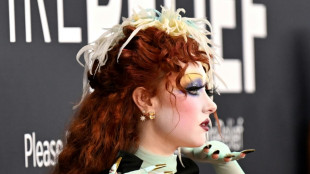 Grammys red carpet: all the drama, all the hotness
Grammys red carpet: all the drama, all the hotness
-
Trial of Spain's ex-football chief over forced kiss to begin

-
 'Breaks a little part of you every day': Texas man on Death Row
'Breaks a little part of you every day': Texas man on Death Row
-
Trump accuses S.Africa of 'confiscating' land, cuts funding

-
 Musk brands USAID 'criminal', Trump calls its leaders 'radical lunatics'
Musk brands USAID 'criminal', Trump calls its leaders 'radical lunatics'
-
Rubio lays down ultimatum to Panama over canal

-
 Sizzling McIlroy captures PGA Pebble Beach title
Sizzling McIlroy captures PGA Pebble Beach title
-
Doncic thanks 'special' Mavs fans after shock trade to Lakers

-
 Musk brands USAID 'criminal' as civil service scrutiny grows
Musk brands USAID 'criminal' as civil service scrutiny grows
-
Early wins for Beyonce, Kendrick Lamar, Charli XCX as Grammys begin
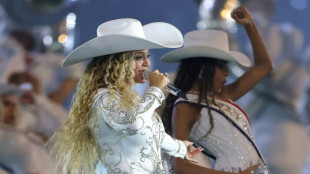
-
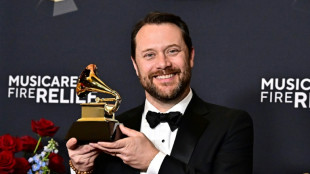 Jimmy Carter wins posthumous Grammy for best audiobook
Jimmy Carter wins posthumous Grammy for best audiobook
-
Cavs crush Mavs in aftermath of shock Doncic trade

-
 Olympic champions Lyles, Holloway blast to victory in Boston
Olympic champions Lyles, Holloway blast to victory in Boston
-
Bergs scores accidental knockout to send Belgium past Chile in Davis Cup

-
 Mexican farmers, auto-parts makers urge dialogue with US
Mexican farmers, auto-parts makers urge dialogue with US
-
Late derby drama keeps Inter on Napoli's heels in tight Serie A title race

-
 Aston Villa sign Rashford on loan from Man Utd
Aston Villa sign Rashford on loan from Man Utd
-
Henrique fires Marseille past Lyon

-
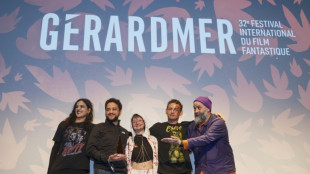 Slasher film 'In a Violent Nature' wins Gerardmer festival top prize
Slasher film 'In a Violent Nature' wins Gerardmer festival top prize
-
Kim holds off No.1 Korda for wire-to-wire win in LPGA opener

-
 Sundowns crush Arrows after title rivals Pirates edge Chiefs
Sundowns crush Arrows after title rivals Pirates edge Chiefs
-
Georgia police arrest two opposition leaders at protest

-
 Spurs energised by getting 'help' out of slump - Postecoglou
Spurs energised by getting 'help' out of slump - Postecoglou
-
Rubio warns Panama of consequences over canal

-
 Mavs boss defends Doncic-Davis deal as trade stuns NBA
Mavs boss defends Doncic-Davis deal as trade stuns NBA
-
Guardiola frustrated after 'fragile' Man City humbled by Arsenal

-
 De Vrij snatches last-gasp Milan derby draw for Inter
De Vrij snatches last-gasp Milan derby draw for Inter
-
Amorim concerned by 'serious' Martinez injury in latest Man Utd defeat

-
 Boniface helps dominant Leverkusen cut Bayern lead to six points
Boniface helps dominant Leverkusen cut Bayern lead to six points
-
Ireland's Prendergast says Crowley rivalry talk 'outside noise'

| CMSC | -0.89% | 23.47 | $ | |
| CMSD | -1.59% | 23.84 | $ | |
| NGG | -0.55% | 61.4 | $ | |
| BCC | -1.98% | 126.16 | $ | |
| SCS | -1.39% | 11.48 | $ | |
| GSK | -0.26% | 35.27 | $ | |
| RIO | -0.83% | 60.41 | $ | |
| RBGPF | 100% | 67.27 | $ | |
| RELX | -0.92% | 49.89 | $ | |
| VOD | -0.82% | 8.54 | $ | |
| AZN | -0.68% | 70.76 | $ | |
| BCE | -0.46% | 23.79 | $ | |
| BTI | -0.1% | 39.64 | $ | |
| RYCEF | -0.81% | 7.43 | $ | |
| JRI | -0.32% | 12.53 | $ | |
| BP | -1.77% | 31.06 | $ |

Eyeing Trump and Putin, EU, UK, NATO leaders talk defence
EU leaders huddle Monday with Britain's prime minister and the head of NATO to discuss efforts to boost Europe's defences faced with an aggressive Russia -- as Donald Trump demands America's allies spend much more.
The gathering in Brussels is billed as a "triple first": the first time the European Union's 27 leaders meet since the US president's inauguration, their first-ever dedicated talks on defence and their first with a British premier since Brexit.
European nations have ramped up their military budgets since Russia launched its all-out invasion of Ukraine almost three years ago.
But officials concede they are still not arming themselves fast enough as warnings grow that Moscow could attack one of their own in the coming years.
Trump's return to the White House has given a fresh jolt to the debate -- with the volatile leader saying Europe can no longer take US protection for granted.
Trump insists NATO countries more than double their current defence spending target to five percent of GDP, a goal out of reach for many.
He has also vowed to bring a quick end to Russia's war in Ukraine, leaving Europeans fearful he could sideline them and force Kyiv into a bad deal.
But it is not just about the spectre of Washington pulling back from Europe -- Trump has rattled US allies with a series of direct threats.
Denmark's prime minister -- who made a tour of several capitals last week -- is expected to seek a common line on Trump's insistence that he wants Greenland.
And there will certainly be discussions on Trump's pledge to impose tariffs on the EU -- which has vowed to respond "firmly" if targeted.
- 'Question of how' -
Given the looming menace from Russia, there is widespread consensus across Europe on the need to step up on defence.
The problem is there is not yet agreement on what exactly that entails.
"It's very clear for everyone around the table that investment must increase," an EU official said.
"It is not a question of if, it is a question of how."
Brussels estimates the bloc needs to invest an extra 500 billion euros ($510 billion) on defence over the next decade.
Key dividing lines revolve around how to fund the required investment, whether EU cash should be spent only on EU arms, and what role NATO should play.
There is also a geographical split, with countries closer to Russia already doing far more than those further to West.
Funding is the major question, with a number of member states pushing for massive joint EU borrowing.
But Germany -- which faces a fraught election this month -- has tried to shut down discussion of that sensitive topic.
"The worry is this meeting might become just another box-ticking exercise if we don't discuss the elephant in the room of financing," one EU diplomat said.
With no sign of movement on that, EU states have called for the bloc's lending arm, the EIB, to drop limits on lending to defence firms.
On weapons, France -- long accused of caring more for its own industry -- insists arms should be bought in the EU.
Others counter that countries should look to whoever can supply quickest.
Buying from the United States could also be a way to keep Trump on side, they argue.
The division of labour with NATO is also in the spotlight as some in the EU say Brussels should be involved in setting targets for what countries require -- a suggestion that has riled NATO.
- UK security deal? -
As doubts swirl over the transatlantic relationship, many are keen to step up ties with an old friend: Britain.
Five years after the UK left, Prime Minister Keir Starmer will be back in the EU fold -- at least for one dinner.
Starmer, the first UK leader to attend a European Council gathering since Brexit, plans to call on the EU leaders to "continue bearing down" on Russian President Vladimir Putin and to "step up and shoulder more of the burden in order to keep Europe safe against Russia's increasing campaign of sabotage and destruction on our continent".
Starmer, who has sought to "reset" relations after the rancour of Brexit, will also discuss a possible UK-EU defence and security deal.
That could bring Britain, with its potent military and large defence industry, a little closer.
But the bitter legacy of Brexit remains.
Numerous EU diplomats said there cannot be progress until a dispute over fishing rights is resolved and London drops its opposition to a youth mobility scheme proposed by Brussels.
"There is no beating around the bush that the future relationship on fisheries is also very important," one diplomat said.
L.Dubois--BTB
